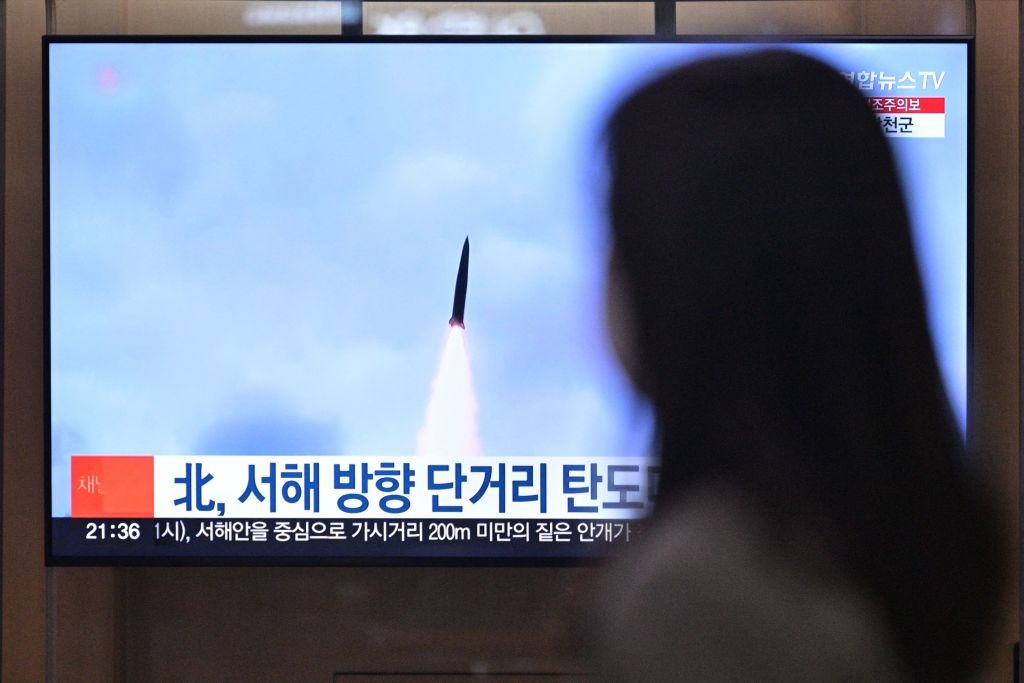Russia’s use of North Korean missiles in its offensive in Ukraine has raised concerns about Pyongyang gaining valuable insights into the effectiveness of its weaponry in real combat scenarios. General Charles Flynn, the U.S. Army Pacific’s commanding general, emphasized the potential risk of North Korea acquiring knowledge about their missiles through the war in Ukraine, where they have reportedly been used by Russia. The U.S., South Korea, and other nations have accused North Korea of supplying Russia with nuclear-capable ballistic missiles, such as the Hwasong-11s, known for their precision and ease of concealment. Despite conflicting reports on the number of missiles used by Russia in Ukraine, there is a shared concern about the implications of North Korean involvement in the conflict.
The U.S. military official noted that the situation in Ukraine provides North Korea with a unique battlefield laboratory to test and enhance its weaponry, which could pose a significant security threat to regional stability. General Flynn emphasized the importance of closely monitoring the unfolding developments in Ukraine and the implications for North Korea’s military capabilities. The use of North Korean missiles by Russia in its attacks on Ukraine has raised alarm bells among experts and officials who fear that Pyongyang may benefit from observing the performance of its weapons in actual combat situations. The close ties between North Korea and Russia in terms of military provisions add another layer of complexity to the ongoing conflict in Ukraine.
Russia’s veto of the annual renewal of the panel of experts monitoring U.N. sanctions against North Korea over its nuclear and ballistic missile programs further complicates the situation. The use of North Korean missiles by Russia in its offensive in Ukraine has highlighted the challenges of enforcing international sanctions and monitoring the proliferation of weapons of mass destruction. The veto by Russia to block the renewal of sanctions monitors for North Korea underscores the rift between global powers in addressing the threats posed by Pyongyang’s nuclear and ballistic missile programs. The use of North Korean missiles in a conflict zone like Ukraine raises concerns about the potential escalation of regional tensions and the implications for global security.
The involvement of North Korean missiles in the conflict in Ukraine has shed light on the complex web of relationships between countries involved in the conflict. The shared interests and strategic partnerships between North Korea and Russia have raised concerns about the extent of collaboration in military affairs and the potential consequences for regional stability. The use of North Korean missiles by Russia in its attacks on Ukraine reflects the evolving dynamics of global security and the challenges of preventing the proliferation of weapons of mass destruction. The U.S. and its allies continue to monitor the situation closely and assess the risks posed by North Korea’s military involvement in the conflict. The need for concerted international efforts to address the threats posed by North Korea’s ballistic missile programs remains a top priority for global security.
In conclusion, the use of North Korean missiles by Russia in the conflict in Ukraine underscores the interconnected nature of global security challenges and the heightened risks posed by the proliferation of weapons of mass destruction. The unique opportunity presented to Pyongyang to assess the effectiveness of its weaponry in real combat scenarios through the war in Ukraine raises concerns about the potential security implications for regional stability. The veto by Russia to block the renewal of sanctions monitors for North Korea further complicates efforts to address the proliferation of nuclear and ballistic missile programs. The close ties between North Korea and Russia add a layer of complexity to the conflict in Ukraine and underscore the importance of international cooperation in addressing the evolving threats to global security.


